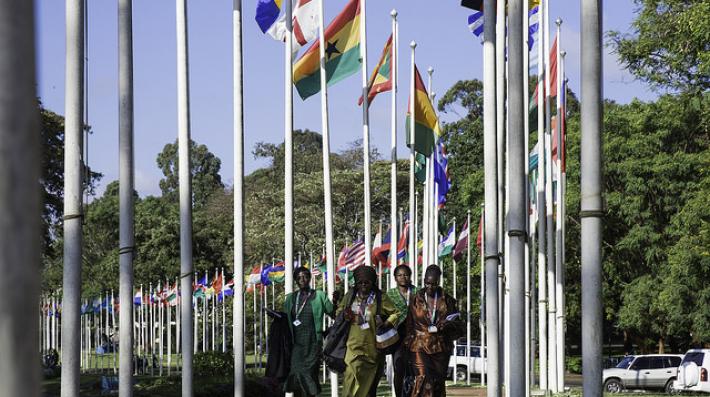
NAIROBI, March 11 (NNN) — Over 4,700 heads of state, ministers, business leaders, senior UN officials and civil society representatives are gathering in Nairobi for a meeting of the world’s top body on the environment, where they are expected to take decisions that will move global societies to a more sustainable path.
A statement issued by UN Environment here, said the fourth UN Environment Assembly (March 11-15), with the theme “‘Innovative Solutions for Environmental Challenges and Sustainable Consumption and Production”, has drawn a larger number of participants from the previous years, and will include prominent world leaders including the Presidents of France and Kenya, Emmanuel Macron and Uhuru Kenyatta, and CEOs from major corporations.
Delegates are expected to tackle, negotiate and make bold decisions during the meet in the areas of sustainable consumption and production patterns, commitment to the protection of the marine environment from plastic pollution, food waste, and advancing technological innovations that will combat climate change, and reduce resource use and biodiversity loss.
As the only UN body outside the General Assembly where all member states convene, the meet is expected to bring together all sectors and set the global environmental agenda.
According to the UN statement, the decisions at the meet are expected to have a profound impact on the goals of the Paris Agreement and the 2030 Agenda for Sustainable Development, while paving the way towards the UN Climate Change Summit 2019.
Ahead of the meeting, UN Environment’s Acting Executive Director, Joyce Msuya, appealed to nations to step up and start delivering real change.
“Time is running short. We are past pledging and politicking. We are past commitments with little accountability. What’s at stake is life, and society, as the majority of us know it and enjoy it today,” she wrote in a policy letter.
Meanwhile a UN-Environment report has put the value of lost ecosystem services between 1995 and 2011 at $4 trillion to $20 trillion, saying that it reflected how agricultural practices are putting increasing pressure on the environment, costing an estimated $3 trillion per year, and estimates pollution-related costs at $4.6 trillion annually.
“As never before, the time to act is now,” said President of the UN Environment Assembly and Minister of Environment of Estonia, Siim Kiisler. “We know we can build more sustainable, prosperous and inclusive societies with sustainable consumption and production patterns that address our environmental challenges and leave no one behind. But we will need to create the enabling conditions for this to happen. And we will need to do things differently.”
The Assembly will also see new research launched by UN Environment, including the latest edition of the world’s only comprehensive global scan of the environment: Global Environment Outlook 6, which was produced by 252 scientists and experts from over 70 countries. The International Resource Panel’s Global Resources Outlook, meanwhile, takes stock of material extraction, including the future outlook and recommendations on how to use natural resources more sustainably.
“It’s clear that we need to transform the way our economies work, and the way we value the things that we consume,” said Msuya. “The goal is to break the link between growth and increased resource use, and end our throwaway culture.”
–NNN



